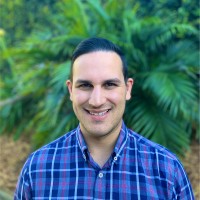The teaching profession is witnessing an unprecedented surge in educators leaving their roles, with their departures being attributed to soaring workloads and high expectations. Charlotte was among those teachers who pondered a career shift, who, after a period of reflection, discovered her true calling as a special education teacher. Inspired by her newfound passion for aiding students with diverse needs, Charlotte is furthering her expertise by studying the Master of Counselling and Psychotherapy at ACAP.
Before venturing into special education, Charlotte taught maths, science, and PE at a mainstream high school in South Australia. Overwhelmed by the demands of teaching multiple year groups with varying learning levels, Charlotte contemplated leaving the profession. A timely suggestion from a friend, however, changed everything.
“I spoke to a friend, who was teaching at a disability unit, and they said I’d really get on well there,” Charlotte said. “I tried it, and they were right, I love it.”
Charlotte’s enthusiasm for her students is evident as she passionately describes the unique challenges they face. From a non-verbal student communicating through facial expressions to another with critical vision impairment, Charlotte embraces the diversity of her classroom. Since studying counselling and psychotherapy at ACAP, she’s enhanced her knowledge of her students’ needs.
“Studying at ACAP has helped me understand my students better, particularly in terms of the way their minds work,” Charlotte explained. “It’s about knowing everyone is different, rather than having a disability, because they are all very capable, so long as the right accommodations are made.”
ACAP’s Master of Counselling and Psychotherapy course offers a blended online and in-person mode of learning and is accredited by the Australian Counselling Association (ACA) and the Psychotherapy and Counselling Federation of Australia (PACFA). Charlotte expressed her satisfaction with the learning format, debunking her initial concerns about virtual learning.
“Prior to starting the course, I was a little bit concerned about online study, as I thought I was someone who had to always go into a physical environment to learn, but I have actually performed better through the blended model.”
Charlotte’s ability to seamlessly apply her newfound skills in her role as a special education teacher while studying online underscores the practicality of ACAP’s courses.
“I’ve still been able to work and gain experience as a special education teacher, which has meant I’ve been able to apply a lot of the skills I’ve learnt straight away.”
ACAP CEO, George Garrop, commented on the Disability Royal Commission’s final report, released in September 2023, and applauded Charlotte on the strides she had made with her postgraduate studies.
“With the Disability Royal Commission recently calling for the phasing out of special schools by 2051, mainstream schools and teachers will be required to have the necessary skills and knowledge to support students with diverse needs,” Mr Garrop said.
“ACAP is dedicated to empowering teachers like Charlotte, who exemplify the transformative impact of our courses. We are proud to provide passionate teachers, like Charlotte, the platform to enhance their skills and make a meaningful difference.”
Looking towards the future, Charlotte aspires to register with PACFA and ACA upon completing her degree and expressed a desire to shape young minds as a counsellor.
“I’d love to be a school counsellor one day, but that’s in the future. Any way I can continue to support young people with their growth and development is incredibly satisfying for me.”


